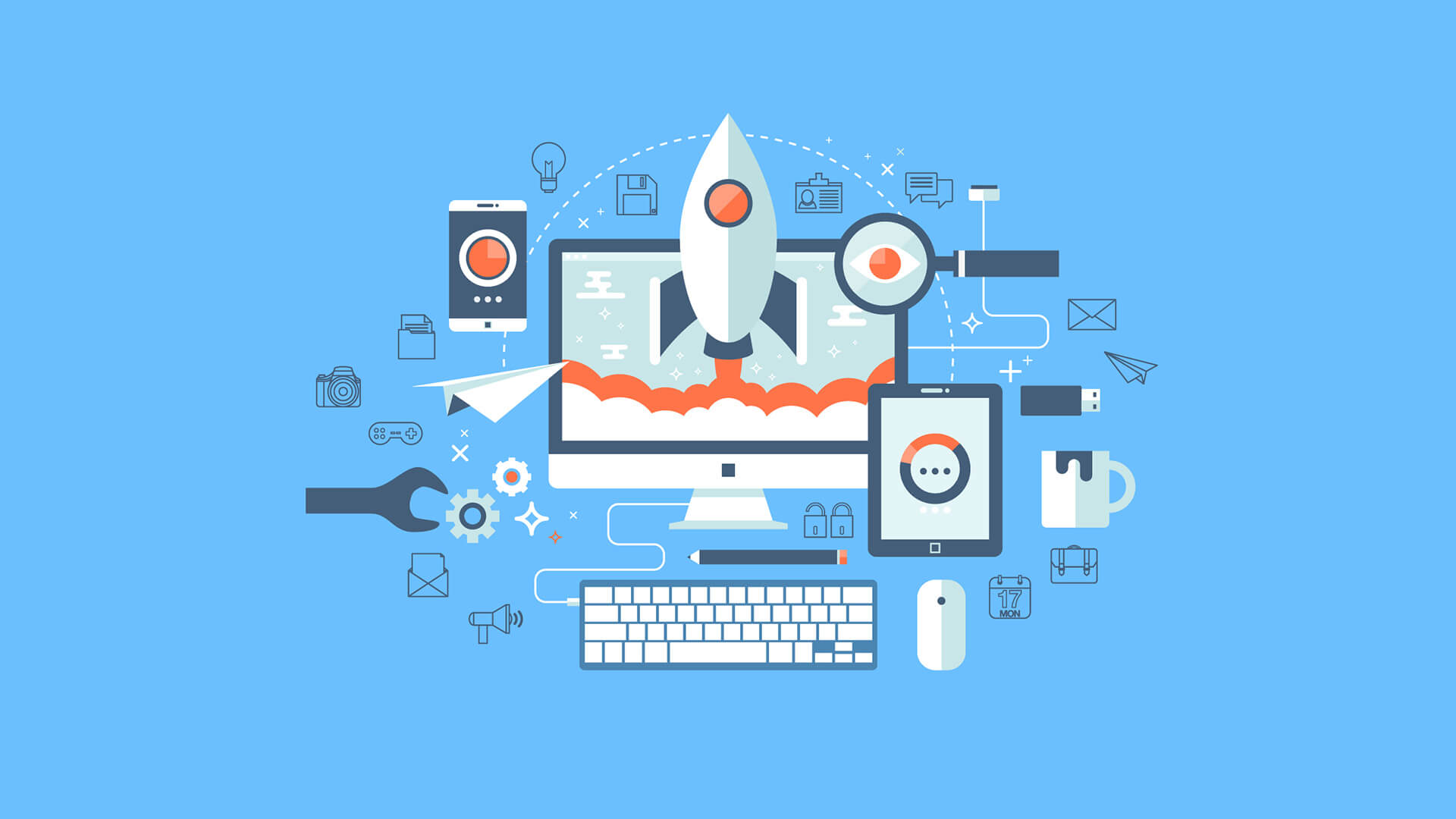Benefits of the Mobile Web
The mobile Web or Web on the move is browsing the Internet from a device with small screen and limited resources. This gives mobile users many benefits such as:
- Constant Connectivity
Accessing the Web from mobile devices provides the users with around the clock access to the Internet regardless of their location.
- Interactive Capabilities
Mobile Web offers users the participatory experience of the read/write Web in the mobile devices of their hand.
- Location Aware
Many of today’s smart phones and tables have global positioning system (GPS) capabilities which make them aware of where they are at any time.
- Limitless Access
Mobile Web encompasses the whole Web, not only those sites which have been specially designed for mobile browsing.
OneHoster is one of the best web hosting companies in Egypt, we offer many web hosting packages in Egypt and middle east like, cPanel storage hosting packages, cloud hosting, domain registration, dedicated servers solution, Email hosting, WordPress hosting, web hosting upgrades and hosting renewals to suit your requirements to host your website for small and medium sized businesses. OneHoster is also one of the top 10 website design companies, and top 10 digital marketing companies in Egypt and Middle east.
“OneHoster’s Team”
Mashup Advantages and Disadvantages
What is mashup?
The using of mashup in the proposed architecture become important issue when noticed that there are some problems that face webmasters, Web developers, and Web designers in their everyday work. This problem comes from the nature of Web technology. Big part from this problem could be solved using mashup, since it is fairly easy to implement the Web content systems from different online services. Mashup is a Web page or application that combines resources or functionalities from two or more sources creating a new application or service. Mashup is an emerging software engineering paradigm aligned with the trend towards the programmable Web. Mashup is based on the longest tail theory which is from business perspective to allow the use of different services and to break down business processes into smaller pieces.
The history of mashup comes from music industry before it become an Internet popular concept in which musicians combine mixture of two or more tracks to create a new song that is called mashup. Today Web mashups are becoming one of the salient tools for providing composite services to meet users request and open a new area for researchers with many endeavors to enhance this technology for Web developers and designers. Many approaches used now for mashup of Web contents and Web technologies to provide a mobile Web contents, to offer Web application, or even for Web application programming interface (API). One of these contributions is a method to utilize the social and functional relationships among Web APIs to produce and recommend the chains of candidate mashup.
Mashup advantages and disadvantages
While mashups are a very useful tools, there are some advantages and disadvantage, as follows.
Mashup advantages
- Allow for the reuse of existing applications: is the most powerful benefit in which the user can use preexisting one to implement the new feature to embed in the new Web application, this enable reusability of existing services or data,
- Time saving and rapid development: this comes from the first advantage in which the user will be able to rapidly develop new applications with new features,
- No extensive IT skills required: most of the work is abstracted behind the scenes and the user only needs to learn how to implement it without extensive IT or programming skills, and
- Cheap cost efficient: the preexisting applications that were previously developed will serve in which, there will be no money re-investment on long development schedules or training for developers to implement the features from scratch.
Mashup disadvantages
- Service reliability and QoS: the user is dependent on the other developers to make sure that the application does what it intends to do without bugs and there is no control over the quality or the features for the implemented component,
- Integrity of content no warranted: the user will have no choice but to replace the service if it stop working or API gets discontinued and there is no guarantee this component will be continuously supported,
- Scalability issues: if Web application has a bigger grows, there is no guarantee that the service to be implemented will continue working,
- Security: if there is sensitive data working with the mashup API, it may be subject to a security concern, the contents used in the mashup are not guaranteed to be secure,
- There are no standards: another difficulty in designing and implementing mashup to ensure the integrity of the data being used is that there are no standards for the development or application of a mashup, and
- Most data sources are not made as a service: all traditional application design and development were done before the mashup technology, thus if the developer decide to access data using mashup, it must be implemented first as a service before starting
OneHoster is one of the best web hosting companies in Egypt, we offer many web hosting packages in Egypt and middle east like, cPanel storage hosting packages, cloud hosting, domain registration, dedicated servers solution, Email hosting, WordPress hosting, web hosting upgrades and hosting renewals to suit your requirements to host your website for small and medium sized businesses. OneHoster is also one of the top 10 website design companies, and top 10 digital marketing companies in Egypt and Middle east.
“OneHoster’s Team”
Pros and Cons of Cloud Computing
As with everything in the IT world, there are pros and cons and this burgeoning technology offers several advantages and disadvantages. Following is a list some advantages of cloud computing followed by the disadvantages.
Cloud computing advantages
- Improved performance: when the applications are run from the cloud, a better performance is expected and the computers running over cloud system will boot up faster and run faster, due to the fact that fewer programs and processes are loaded into memory.
- Increased computing power: users of the cloud can obtain the power of the entire cloud system, are not limited to the PC power, and can do tasks with the power of thousands of computers and servers.
- Unlimited storage capacity: cloud users will get virtually unlimited storage capacity that is not compared to the storage space of local PCs with the million of gigabytes that are available in the cloud.
- Lower cost computers for users: application runs in the cloud not on the desktop PC and the PC doesn’t need the processing power or hard disk space, thus cloud computing is lower priced, with smaller hard disks, less memory, more efficient processors.
- Lower IT infrastructure costs: no investment in large numbers of more powerful servers, companies will not have to purchase hardware equipment, this computing resources needs are easily handled by computers and servers in the cloud.
- Lower software costs: there is no need to purchase separate software packages for each computer, employees will use the desired application from the cloud, even if the cost of using cloud application is the same like desktop software, and it’s not, but the cost saving of installing and maintaining those programs on every desktop in the organization is great.
- Increased data safety: when using desktop computer, what will happen if the hard disk is crashed or destroyed? This will not happen in the cloud because if there is a storage crash in the cloud this will not affect the data that is automatically duplicated in the cloud storage, so nothing is ever lost.
- Improved compatibility between operating systems: If the network has a heterogeneous OS, like if the user wants a Linux machine to share data to Windows or Mac, users will not face these compatibility problems in cloud. The users can access the cloud from any platform and share or access any documents meaning the matter is the data not the OS.
- Improved document format compatibility: The document format compatibly of the OS will not exist in the cloud and all documents that are created or used are done through the cloud application resulting in no incompatible formats.
- Easier group collaboration: This is one of the most important advantages of cloud computing in which many users can access and share the same document at the same time. Group collaboration means faster completion of most group projects which enables access from different geographic locations.
- Removes the tether to specific devices: This is another important cloud computing advantage in which the users are not tied to a single computer or network. Moving to a mobile devices is welcome and there is no need to buy a special version of a program for a particular device. The users just need to save their documents on the cloud and could open them from any device everywhere.
- Latest version availability: cloud always will host the latest version of users documents and editing from anywhere will get the latest version.
- Instant software updates: An important advantage to cloud computing is that there is no choice between obsolete software and high upgrade costs. Cloud applications updates will done automatically and are available each time users access the cloud applications without paying for downloading an upgrades.
- Fewer maintenance issues: cloud computing greatly reduces both hardware and software maintenance for organizations of all sizes. For the hardware, if there is a fewer servers utilized in the organization, then the maintenance costs are immediately lowered, also the software maintenance can be reduced.
Cloud computing disadvantages
- Requires a constant Internet connection: it is impossible to work with the cloud without good Internet connection. If not available, the users will not be able to access their applications and documents and this is considered as one of the big disadvantage of cloud computing.
- Doesn’t work well with low speed connections: slow Internet connection such as dial-up services makes cloud computing painful and often impossible. Cloud applications require a good bandwidth to work and with a slow connection users will just be able to switch application pages not doing a real work.
- Can be slow: Cloud Web based applications can sometimes be slower than accessing a similar software program on the user’s desktop PC, even on a fast connection. The application interface on cloud have to be sent back to the cloud servers, unlike the traditional desktop application which run over the same PC, making it faster.
- Features might be limited: Web based applications is simpler than the full featured desktop based, and this is a main disadvantage of cloud. The normal users might like to work on desktop PC rather than jump to the cloud, and that’s why cloud applications today try to add more advanced features over time.
- Stored data might not be secure: The cloud users’ data is stored on the cloud storage and the problem is how to secure the cloud itself. The confidentiality of data is a very important issue to prevent unauthorized users gaining access to confidential data.
- What if the cloud loses your data: the data over cloud is unusually safe and the cloud storage implements a replication plan across multiple machines. However, if the users’ data is lost from the cloud, there is no physical or local backup, unless the users are periodically download their cloud data and keep local backup at their Desktops.
OneHoster is one of the best web hosting companies in Egypt, we offer many web hosting packages in Egypt and middle east like, cPanel storage hosting packages, cloud hosting, domain registration, dedicated servers solution, Email hosting, WordPress hosting, web hosting upgrades and hosting renewals to suit your requirements to host your website for small and medium sized businesses. OneHoster is also one of the top 10 website design companies, and top 10 digital marketing companies in Egypt and Middle east.
“OneHoster’s Team”
Overview About Mobile Devices
Today there are hundreds of mobile phones in the market; mobile phones are not the only mobile devices there are also pocket computer devices like PDAs, micro notebooks and handheld notebooks, here I will take about mobile phones, PDA and some other mobile devices.
Mobile Phones
The largest segment for mobile devices, they have specialty processor and there own operating system the widely used is Symbian or windows mobile but there is also others, At the first development of mobile phone its use was voice and text messages but the technology over the years go fast for other uses like play music, photos, run applications and many other options this change the use of mobile from simple feature phone to smart phone.
The standard input for mobile phones is a 12 keypad with additional function keys, some other have joystick that can be used in navigation, with wider screen models there was other style available like input through touch screen keyboard like iPhone, some others have a keyboard input like Nokia E61, 63 or 71. Today most of mobile phones come with web browser like opera mini which is the most popular web browser some other come with different types of browsers.
Personal Digital Assistants (PDA)
Personal Digital Assistants (PDA) is the other class of mobile devices, it contain many other business features and productivity applications like office and emails, the most important that it can have their custom software, they have QWERTY keyboard in the device or screen, phone function is add on for PDSs, this type of devices are very popular with business users and merging phone with the device itself.
Other Mobile Devices
Micro notebooks and handheld notebooks can be classified as a mobile device, technology expect many hybrid devices to come up in the next few years that will have higher computing power and mobile communication technology.
OneHoster is one of the best web hosting companies in Egypt, we offer many web hosting packages in Egypt and middle east like, cPanel storage hosting packages, cloud hosting, domain registration, dedicated servers solution, Email hosting, WordPress hosting, web hosting upgrades and hosting renewals to suit your requirements to host your website for small and medium sized businesses. OneHoster is also one of the top 10 website design companies, and top 10 digital marketing companies in Egypt and Middle east.
“OneHoster’s Team”
What is Mobile Web Limitations?
Old mobile devices have screen size from 120×120 pixels up to 320×240 this means that you can show about 6 lines of 25 characters, some mobiles also support a few types of images and multimedia format for example animated GIF is not supported on most phones, the mobile browser of course faces the same limitations that mobile web faces like:
- Small screen size: This makes it difficult or impossible to see text and graphics dependent on the standard size of a desktop computer screen.
- Lack of windows: Ability to open more than one window
- Navigation: No mouse thereby limiting the flexibility in navigation
- Lack of JavaScript and cookies: Most devices do not support client-side scripting and storage of cookies except smart phones and iPhone, this is not being suitable for uniquely identifying visitors using mobile devices.
- Speed: Most mobile devices speed of service is very slow, often slower than dial-up Internet access.
- Types of pages content like (Flash, PDF …)
- Compressed pages
- Size of messages: Many devices have limits on the number of characters that can be sent in an email message.
- Cost: Access and bandwidth charges levied by cell phone networks are much higher than those for fixed-line internet access.
Now day mobile devices try to solve most of the previous problems thought develop some strategies like increasing the screen size, enhance the hard resources like processor capability, add more ram, develop a new operating system (OS), enhance the Global System for Mobile Communications (GSM) network itself or add a network card to provide the wireless access thought using the Wi-Fi technology.
OneHoster is one of the best web hosting companies in Egypt, we offer many web hosting packages in Egypt and middle east like, cPanel storage hosting packages, cloud hosting, domain registration, dedicated servers solution, Email hosting, WordPress hosting, web hosting upgrades and hosting renewals to suit your requirements to host your website for small and medium sized businesses. OneHoster is also one of the top 10 website design companies, and top 10 digital marketing companies in Egypt and Middle east.
“OneHoster’s Team”
Hybrid Web Applications (Mashup)
The using of mashup in the proposed architecture become important issue when noticed that there are some problems that face webmasters, Web developers, and Web designers in their everyday work. This problem comes from the nature of Web technology. Big part from this problem could be solved using mashup, since it is fairly easy to implement the Web content systems from different online services. Mashup is a Web page or application that combines resources or functionalities from two or more sources creating a new application or service. Mashup is an emerging software engineering paradigm aligned with the trend towards the programmable Web. Mashup is based on the longest tail theory which is from business perspective to allow the use of different services and to break down business processes into smaller pieces.
The history of mashup comes from music industry before it become an Internet popular concept in which musicians combine mixture of two or more tracks to create a new song that is called mashup. Figure 1.1 illustrates the concept of mashup for Internet technology. Today Web mashups are becoming one of the salient tools for providing composite services to meet users request and open a new area for researchers with many endeavors to enhance this technology for Web developers and designers. Many approaches used now for mashup of Web contents and Web technologies to provide a mobile Web contents, to offer Web application, or even for Web application programming interface (API). One of these contributions is a method to utilize the social and functional relationships among Web APIs to produce and recommend the chains of candidate mashup.
The combination of wireless communication, cloud computing, portable computing devices and the concept of mashup has laid the foundation for a novel computing model, called mobile mashup cloud computing or hybrid mobile Web cloud applications. This provides the users with an online access to unlimited computing power and extra powerful Web applications. This type of combination can unveil a world of new innovative mashups technology that tackles some old problems. the challenges include how to abstract the complex heterogeneous underlying technology, how to achieve optimal adaptation under different constraints, how to model all the different parameters that influence the performance and interactivity of the application, and how to integrate computation and storage with the cloud while preserving privacy and security.
It is known that Web applications in service oriented architectures are implemented as Web services with XML-based protocols to provide plentiful information to users by object oriented techniques. Web applications today enjoy with a great progress, this enable traditional Web and mobile Web to be designed toward, facilitating interactive information sharing, providing interoperability and collaboration mechanisms, and establishing user oriented service.
Mashup types
Mashups can be categorized into three main types which are, data mashups, consumer mashups and business mashups as follows:
- Data mashups
Data mashup aims to combine similar multiple types of media or information from multiple data sources into a single representation. The combination of all these resources creates a new representation. This new representation is a distinct Web service from the sources and provides data in a new Web service. This new Web service was not originally provided by any of the sources. An example for this mashup is the Skyscanner.com that combines data and provides flight tickets from multiple sources such as British Airways, Air France and Iberia.
- Consumer mashups
Is designed for the general public and is considered as a counterpart of the data mashup but by combining multiple public data sources of different data types into a visual representation. Consumer mashup is a very effective mean for personalizing data according to the customer’s needs. Wikipediavision is an example of consumer mashup. It combines real time data from the Wikipedia with Google Maps allowing users to see real time edits to Wikipedia on a world map.
- Business mashup
Sometimes called as enterprise mashup, business mashup aims to solve business problems like the consumer mashup but it works differently in other aspects such as the security levels required. The level of sophistication is the need for quality of Service (QoS) and some other aspects. Business mashup defines applications that combine their own resources, or application and data with other external Web services, or generally combine internal information and services of an enterprise with external resources into a visually rich Web application. It combines data into a single presentation and allow for collaborative action among businesses and developers. It is a secure visually rich Web applications that expose actionable information from diverse internal and external information sources. An example of this category could be PivotalTracker which is a Web-based agile project management tool that allows integration with Twitter, where the project’s members can see real-time updates
2.3.1 Mashup examples and applications
As mentioned before, there are many examples of mashup that are in use for many different business types. For example, mashup video is a video that is edited and built from more than one source and finally displayed as a single video. The most famous example which is very tied to the proposed work is the hybrid Web application, which is the Web application that its data and/or functionality are combined from more than one source. Mashup has characteristics or number of components. The components could be described as a sequence architecture model because each component is based on the other components in a sequence scenario. Below is a list of these mashup components:
- Type: such as Data mashups, Consumer mashups and Business mashup,
- Service Provider: provides access to resources or services online in which the provided services or resource construct the mashup Web applications,
- Protocol: a particular set of rules and guidelines to exchange messages between services which offered by the service provider. The protocol is used for communication between the server and the client, and between the resources and the server,
- Data format: describes how the information is stored in the exchanged messages, these messages contain the required information in a pre defined data format,
- Architecture: this sequence scenario represents a particular architecture, about how the transmission done to the client from the combined resources in the server. Examples of these architectures are directly send the information to the client or combining it in the server first before sending, and
- Interface: last step in this sequence scenario is the client have to see final results from a Web interface, all of this is based on the mashup type, which is done in the first step.
The distinguish between mashup applications and traditional applications is is not an easy task because the border between what is a mashup and what is not is very thin and requires knowledge about how the application work internally, what services the application is using, and its type and service parameters. Programmableweb.com is a mashup directory which has more than 4900 mashups services along with more than 2000 Web APIs, Figure 1.2 illustrates only the top 10 APIs for this mashup.
Mashup is composed of three layers:
- Presentation or User interaction layer: this layer consists of most of the famous languages such as HTML, CSS, AJAX, and XML that are used to make the mashup as visually appealing and functionally efficient as possible,
- Web Services: is used to connect to the products functionality with API services, some tools such as XML HTTPRequest and SOAP are used to accomplish this task, and
- Data: the main content comes here, and it is concerned by how the sending, the storing and the receiving of data are done, most often XML is used.
OneHoster is one of the best web hosting companies in Egypt, we offer many web hosting packages in Egypt and middle east like, cPanel storage hosting packages, cloud hosting, domain registration, dedicated servers solution, Email hosting, WordPress hosting, web hosting upgrades and hosting renewals to suit your requirements to host your website for small and medium sized businesses. OneHoster is also one of the top 10 website design companies, and top 10 digital marketing companies in Egypt and Middle east.
“OneHoster’s Team”








